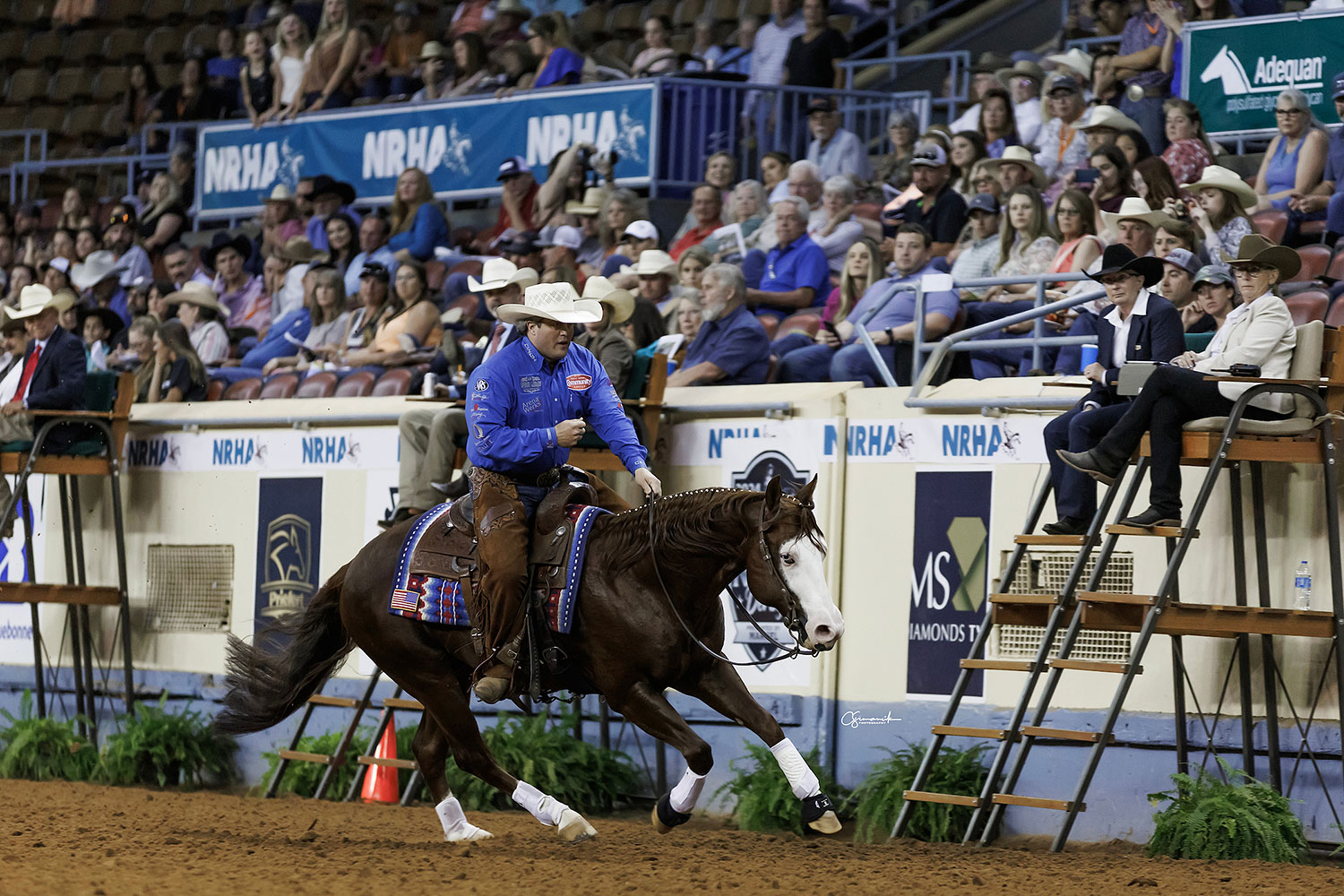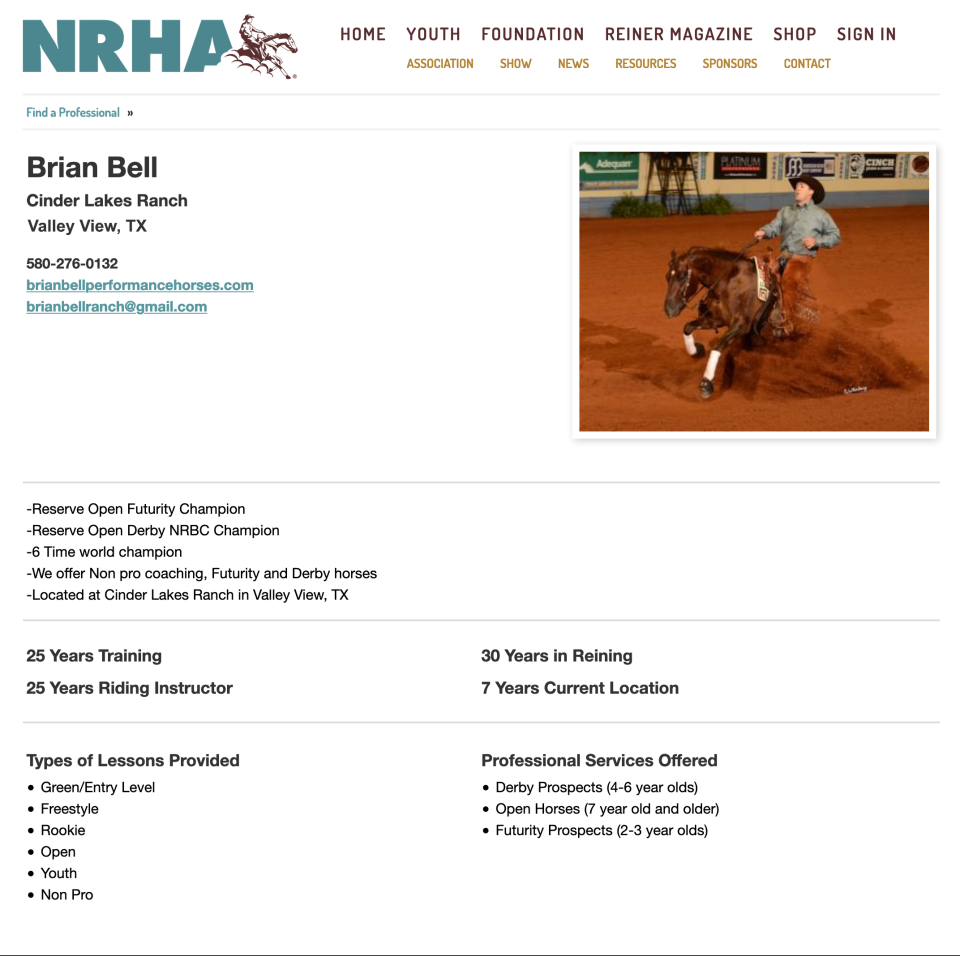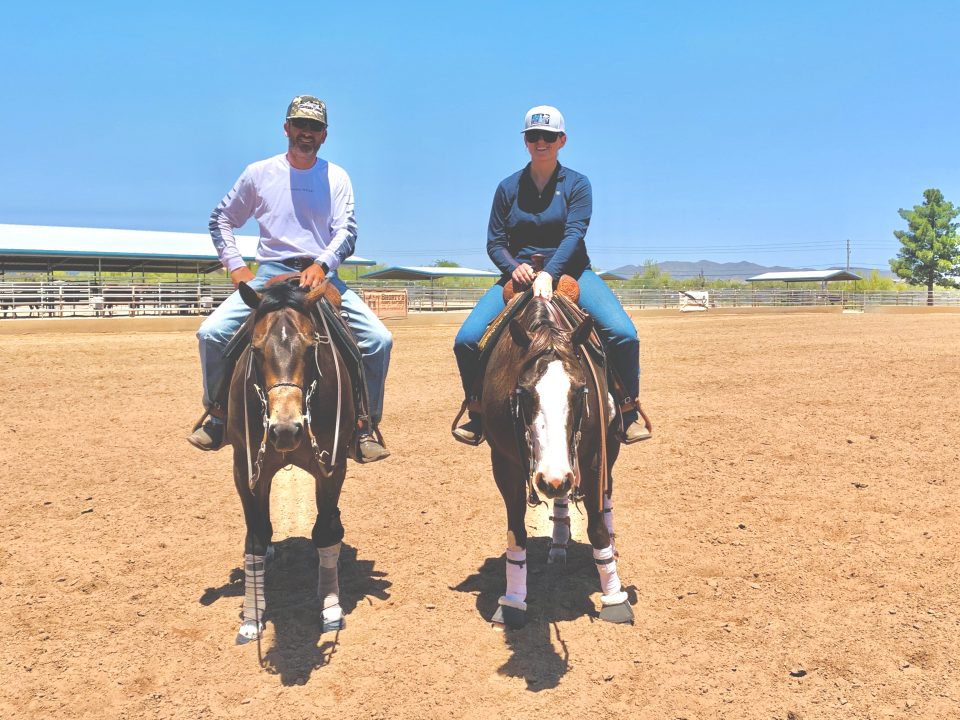NRHA Professionals are learning to branch out from strictly training horses to help pay the bills. Could a side hustle help you boost your income?
By Megan Arszman

Being a horse trainer takes passion and dedication, as well as the cliché blood, sweat, and tears. There are long hours in the saddle, hay to throw, and colts to start. It can take a toll even young bodies. That toll can determine the longevity of your career. This is why it can be beneficial for NRHA Professionals to look outside the training arena for other options to help pay the bills and keep your business profitable.
“You can only make so much money in your training fees,” said NRHA Professional and Million Dollar Rider Mike McEntire. “A trainer should try to do something besides training horses, whether it’s buying and selling a few horses, giving lessons, or something else.”
Professional horsemen have been practicing the art of the side hustle for generations; there just wasn’t a set name for it. Most NRHA Professionals know that there’s more to being a trainer than just showing and training. For some, it’s about coaching non pros, youths, and rookies; others might take on young colts to start.
McEntire and fellow NRHA Professionals Linde von Koeding and NRHA Eight Million Dollar Rider Andrea Fappani have learned that having a side hustle (or three) not only helps supplement the income, but also helps you be a better all-around trainer.
“I don’t like to put all my eggs in one basket,” said von Koeding. “But the biggest benefit for me with everything I do is that it makes me a better trainer, better coach, and a better show-woman.”
In this series, these three pros share what they’ve been doing to expand the outreach of their businesses.
Part 3: Selling and Catch-Riding
Judging
Von Koeding and McEntire both carry judge’s cards for NRHA and the American Quarter Horse Association. McEntire also has a card for the National Reined Cow Horse Association. It started with attending a judge’s seminar as a way to learn what the judges are looking for in a pattern as an aid in their training.
“I feel like every NRHA Professional—even non pros—can benefit from the education I get when I attend the judges’ seminars,” von Koeding said. “Having a judge’s card is helpful as far as the extra income, which can help if I ever get hurt, but the educational part is even more important for my business, I think.”
Both McEntire and von Koeding judge five to seven shows in a typical year, depending on how the shows fit into their training and showing schedules. When it comes to scheduling the shows she judges, von Koeding looks at how the length of the show compares with the length of the drive to the show.
“The show needs to be reasonable with the days I’m judging,” she said. “If I’m only judging one day and it’s a three-day drive, it’s not worth it. It just needs to be the right ratio.”
Both trainers put their clients and horses first before accepting a judging assignment. If the show is immediately before a big show that they’ll compete in, they won’t accept the gig. They also need to know that their horses and riders can manage the time off.
“The older show horses can usually use a break for a few days, but sometimes the younger ones can’t,” von Koeding shared. “I work out of Outwest Stallion Station [in Scottsdale, Arizona], so there are a few different trainers here who can help me with riding one or two of my horses, if needed.”
“I always say first that I have to take care of my clients and get to the important shows for the horses I’m training,” McEntire agreed. “It all has to fit into my schedule.”
Read the rest of this series at the links above.



